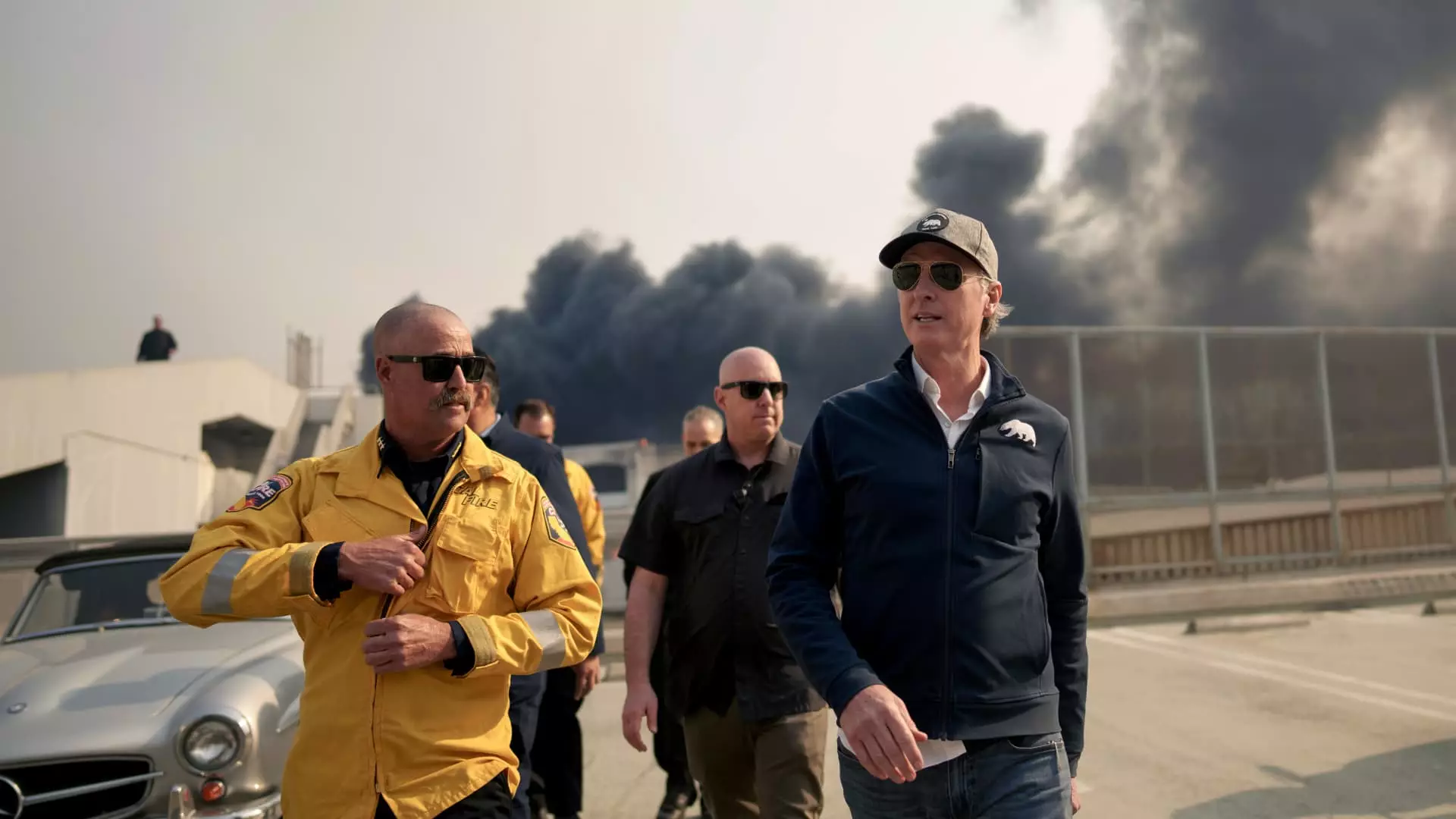The ongoing conflict between California Governor Gavin Newsom and President-elect Donald Trump has been exacerbated by the devastating wildfires that have engulfed parts of California. In a heated exchange on NBC News’ “Meet the Press,” Newsom lambasted Trump for his incendiary comments regarding the state’s wildfire management, particularly criticizing his use of misinformation and blame as unproductive. Newsom’s remarks highlight a broader pattern of how misinformation can shape public perception and impact effective governance during crises.
Trump, in a series of posts on his platform Truth Social, accused Newsom of blocking essential water measures that could have mitigated some of the damages caused by the ongoing fires. He derogatorily referred to the governor as “Gavin Newscum,” a nickname that exemplifies the personal attacks often characteristic of Trump’s social media rhetoric. Trump also twisted the narrative by suggesting that environmental protections for a small fish species, the delta smelt, were a significant cause of the water shortages that contributed to the fire’s intensity, arguing that the blame lay squarely with Newsom’s policies.
As wildfires tore through California, resulting in the loss of at least 16 lives, the matter of federal disaster assistance became a pivotal point of contention. Newsom, cognizant of past grievances Trump held against states led by opposing political parties, expressed his concerns about the potential withholding of aid from Washington. Historical precedents indicate that Trump has previously scorned areas with leaders who challenged him, suggesting that California could be next in line for political retribution regarding federal disaster resources.
In a letter sent to Trump, Newsom extended an olive branch by inviting him to witness the devastation firsthand and to thank the firefighters and first responders directly. This gesture exemplifies a leader trying to bridge political divides in the face of an environmental crisis. However, the absence of a response from the president-elect signals a continued standoff that could have severe implications for recovery efforts, particularly with the federal funding that many California residents and officials depend on during disastrous times.
The weight of misinformation looms heavy in the rhetoric exchanged between Trump and Newsom. The accusations put forth by Trump serve not only to deflect responsibility but also to undermine public understanding of complex environmental issues. Newsom rightly argued that connecting a tiny fish species to the wreckage wrought by massive wildfires distorts the narrative and trivializes the gravity of the situation at hand, showcasing the perils of conflating environmental policy with political vendettas.
When leaders resort to propagating falsehoods, it can create a dire disconnect between reality and public perception, leading to misguided actions and policies that are far removed from what is genuinely effective. Such activities pit constituents against each other based on skewed interpretations of facts, thus crippling any constructive dialogue necessary to address urgent matters like climate change and disaster preparedness.
A Call for Unity Amid Crisis
While the fires rage and communities suffer, the political landscape surrounding these disasters has showcased the need for unity rather than division. Newsom’s invitation to Trump to join him in California to meet affected citizens serves as a poignant reminder that even amidst fierce political disagreement, empathy must prevail, especially during times of crisis.
The wildfires exemplify a much larger issue— climate change and its relentless consequences—not just for California but for the entire nation. If politicians can establish common ground and prioritize the safety and well-being of their constituents over personal grievances, the potential for meaningful change becomes more attainable. The dynamic between the California governor and the President-elect serves as a case study in how political squabbling must not overshadow the collective need for effective disaster response and climate discourse.
As wildfires spark ongoing discussions around water policy, environmental responsibility, and disaster preparedness, it is crucial for leaders to engage in meaningful dialogue rather than deflect blame and misinformation. The stakes could not be higher for Californians, and the choices made in these moments will determine the path towards recovery and resilience in the face of climate change.


Leave a Reply